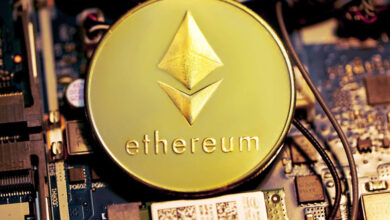Decoding Bitcoin: Everything You Need to Know About the World’s Most Popular Cryptocurrency.

Bitcoin has become a buzzword in recent years, but many people are still confused about what it actually is and how it works. Is it a currency? Is it an investment? Is it secure? The truth is, Bitcoin can be all of these things, depending on how you use it. As the world becomes more digital, cryptocurrencies like Bitcoin are growing in popularity. But with so much information out there, it can be overwhelming to try and understand it all. In this post, we’ll decode Bitcoin for you, covering everything from the basics of how it works to its history, potential uses, and future prospects. Whether you’re a seasoned investor or just curious about this new technology, read on to learn everything you need to know about the world’s most popular cryptocurrency.
1. What is Bitcoin?
Bitcoin is a form of digital currency that has become increasingly popular over the years. It is a decentralized, peer-to-peer currency that allows for secure, instant transactions without the need for a middleman like a bank or payment processor. Bitcoin was first introduced in 2009 and was created by an unknown person or group of people using the name Satoshi Nakamoto. The currency is based on a complex algorithm that is designed to limit the number of bitcoins in circulation to 21 million. Unlike traditional currencies, bitcoins can be divided into smaller denominations, allowing for greater flexibility in transactions. One of the primary advantages of bitcoin is that it is completely decentralized, meaning that no single entity controls it. This makes it much more difficult for governments or other centralized organizations to manipulate or control the currency. Additionally, transactions made with bitcoin are anonymous, making it a popular choice for those who value privacy. Despite its many advantages, bitcoin is not without its challenges. It is still not widely accepted as a form of payment, and its value can be extremely volatile. Nonetheless, bitcoin continues to gain popularity and is now accepted by a growing number of retailers and businesses around the world.
2. How does Bitcoin work?
Bitcoin is a decentralized digital currency that operates without a central bank or single administrator. Transactions are verified by network nodes through cryptography and recorded in a public distributed ledger called a blockchain. The blockchain is a decentralized database that keeps a record of every transaction ever made. This means that transactions are secure, transparent, and cannot be tampered with. Bitcoin operates on a peer-to-peer network, which means that transactions are made directly between users without the need for intermediaries like banks or financial institutions. Anyone can participate in the Bitcoin network by downloading the Bitcoin software or using a Bitcoin wallet. When a user initiates a Bitcoin transaction, that transaction is broadcast to the network. Miners, who are essentially nodes on the network, then verify the transaction and add it to the blockchain. Once the transaction is confirmed, it is irreversible and cannot be changed. One of the key features of Bitcoin is its limited supply. There will only ever be 21 million bitcoins in existence, and as of today, around 18.5 million have been mined. This helps to control inflation and maintain the value of the currency. Bitcoin can be used to buy goods and services, or it can be traded on exchanges for other currencies. It is also possible to mine bitcoins, which involves using powerful computers to solve complex mathematical problems and earn new bitcoins. Overall, Bitcoin’s decentralized nature and secure transaction system make it a popular choice for those interested in digital currencies. While it can be a complex concept to understand fully, once you grasp the basics, Bitcoin can be a great asset for investors and consumers alike.
3. The history and evolution of Bitcoin
Bitcoin has become one of the most talked-about digital currencies today. It was first introduced in 2009 by an unknown person or group of people who used the pseudonym “Satoshi Nakamoto.” Bitcoin is based on a decentralized network, which means that it is not controlled by any government or financial institution. Its transactions are recorded on a blockchain, a public ledger that is secure and transparent. The blockchain technology is what makes Bitcoin unique, and it is what has attracted many people to invest in it. When Bitcoin was first introduced, its value was relatively low and not many people knew about it. As time went on, the value of Bitcoin began to increase, and it quickly gained popularity. The first-ever Bitcoin transaction was made by Nakamoto to Hal Finney, a computer programmer, in January 2009. At the time, one Bitcoin was worth less than a penny. However, by 2010, the value of one Bitcoin had reached $1. Over the years, Bitcoin has continued to gain popularity and has become widely accepted by merchants and businesses worldwide. Some major companies, including Microsoft, Expedia, and Overstock, are among the mainstream companies that accept Bitcoin as a payment method. As Bitcoin’s popularity continues to rise, its history and evolution are still being written. From its humble beginnings as a digital currency, Bitcoin has evolved to become a powerful asset class that investors are taking seriously. Its decentralized nature and the blockchain technology behind it are revolutionizing the way we think about currency and transactions.
4. Potential uses and future prospects of Bitcoin.
Bitcoin has grown to become one of the most popular cryptocurrencies in the world, and its potential uses are nearly endless. One of the most significant advantages of Bitcoin is its ability to be used as a form of payment. Many businesses and individuals accept Bitcoin as a form of payment, and it is becoming increasingly popular in the mainstream world. Bitcoin can also be used for international transactions, making it a great option for those who do business globally. Another potential use of Bitcoin is for investment purposes. Bitcoin has seen a significant increase in value over the years, and many people have invested in Bitcoin in the hopes of making a profit. It is important to remember, however, that Bitcoin is still a volatile investment, and there are no guarantees. Looking towards the future, there is a lot of speculation about the potential of Bitcoin. Some believe that it could become the world’s primary form of currency, while others believe that it will remain a niche investment. Regardless, it is clear that Bitcoin has already made a significant impact on the world of finance and will likely continue to do so in the years to come.
——————————





